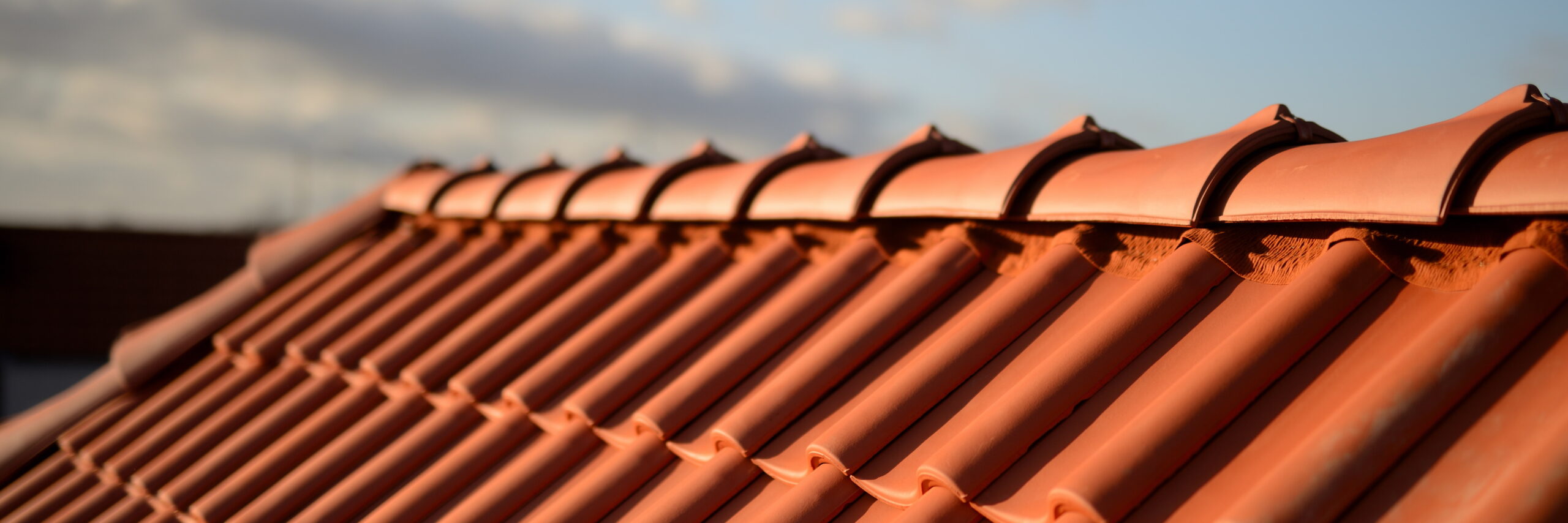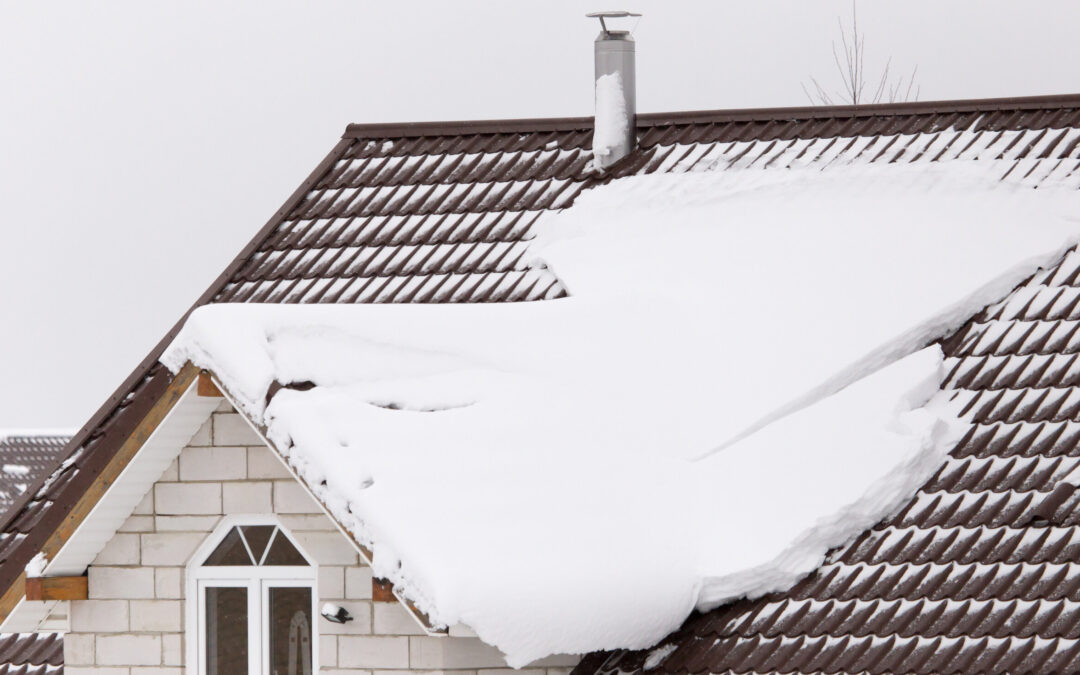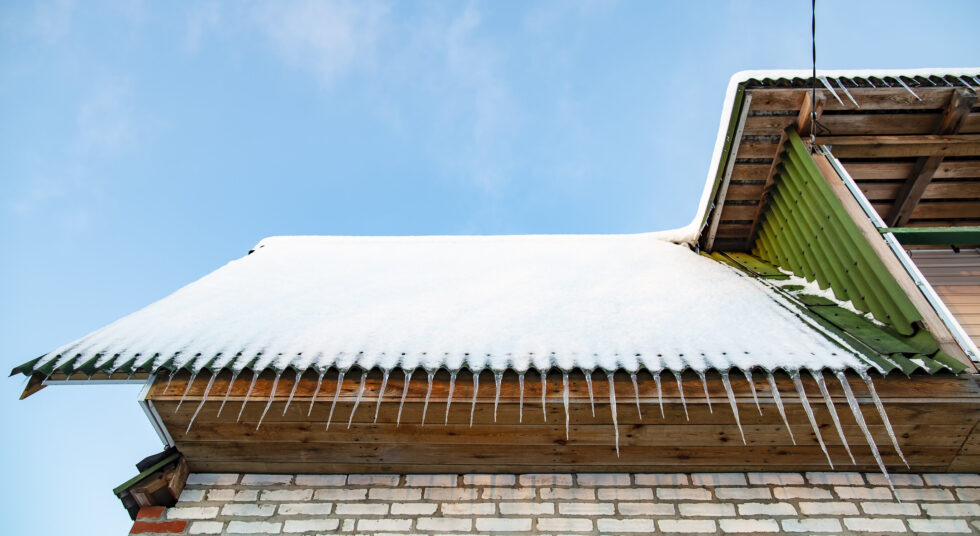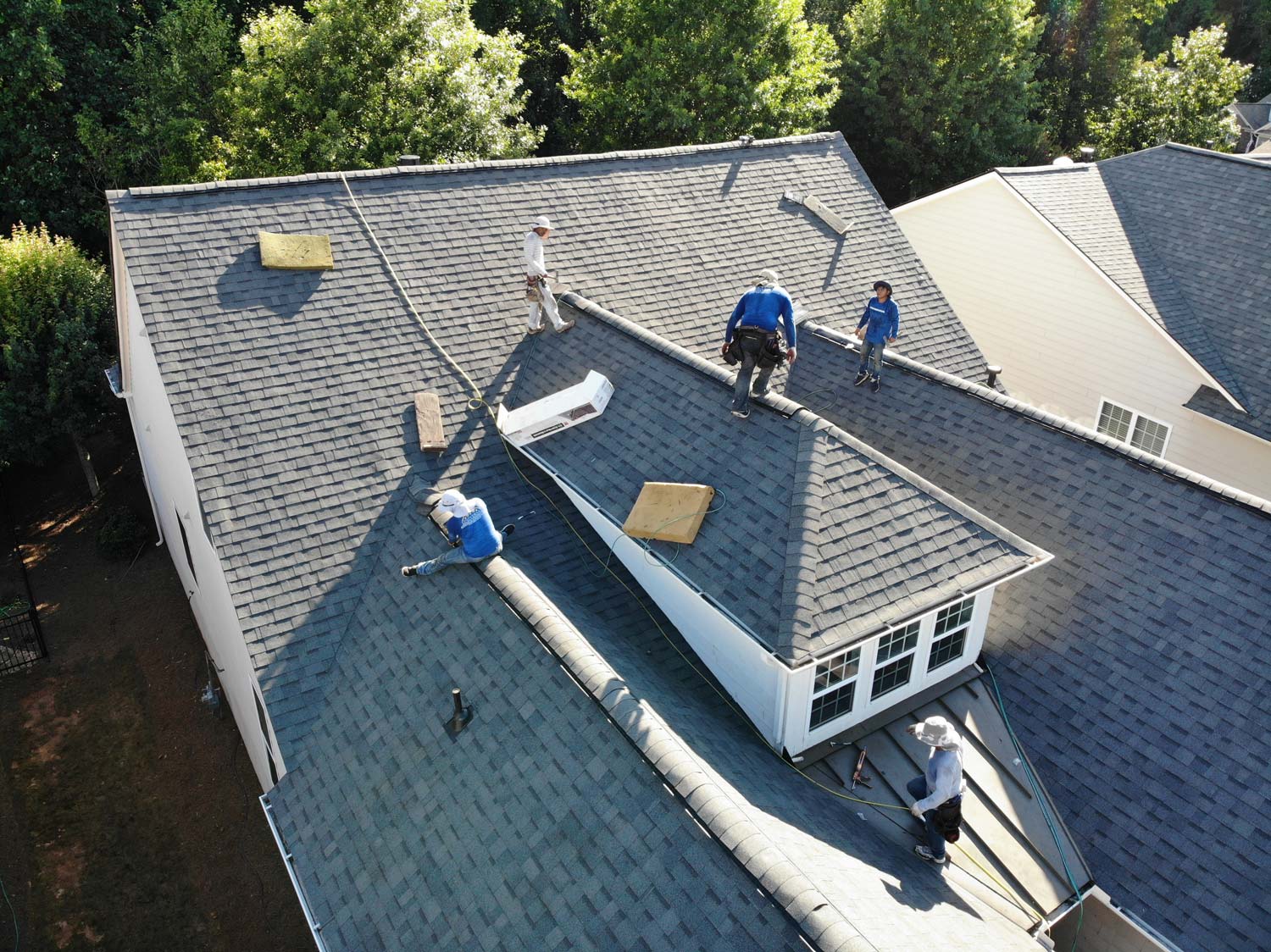How to find the best roof contractor | Universal Roofing
When it comes to your roof, hiring a roofing company that is reputable, experienced, and professional is extremely important. Your roof is one of the most important parts of your home. It protects you and your family from extreme weather conditions, including hail, ice, branches, and rain. And, a new roof is a long-term investment, so it’s extremely critical to find the best roofing contractor in your town.
By maintaining, inspecting, and caring for your roof, you can extend its lifespan and prevent unnecessary damage to your home. So, if you're trying to find a good roof contractor, you've come to the right place. Here, we share tips to help you find the best roof contractor for your home.
Whether you need a total roof replacement or just need some repairs, Universal Roofing can help you with all of your roofing needs. When you call Universal Roofing, you'll be greeted by a friendly and experienced customer service representative who will walk you through the entire process.
Pro Tips To Find The Best Roof Contractor
1. License
Be sure that your roofing contractor you hire has the proper state license to work on your property. Be wary of contractors that don't have the required paperwork to do the job. A reputable roofing contractor will be able to provide a license to do the work you need on your roof.
2. Insurance
Ask the roofing company that you will be working with about the insurance coverage on the roofer. Make sure that the company has liability insurance on their roofers in case of an on-the-job injury. You do not want to be responsible for any accidents or damages that may occur while they are on your roof.
3. Check Online Reviews
You can check online reviews on different websites to see if the roofing contractor you are hiring is reputable. Many people share their experiences with others through online reviews. These reviews provide unbiased feedback so that you can feel confident in the roofing company that you choose.
Why Is Universal Roofing The Best Roof Company?
Universal Roofing is a trusted name in the roofing industry. Our professional roofing contractors have been providing quality services to homeowners for over a decade. We are fully licensed and insured, so you can feel confident that you are working with an established and reliable roofing company. Unlike most roofing companies, we live where we work. Our team of six roofing crews and 26 project managers are out and about everyday. We see our customers at the grocery store, our kids games, and events around town so it’s extremely important that we live up to our stellar reputation. Your community is our community. The relationships we develop with our customers and our community mean more to us than simply meeting sales goals. We know that our business was built on our commitment to serving our customers and providing quality work that we can feel proud of.
In addition, we are bonded and have passed all of the necessary inspections required by law. Our fully insured roofers can give you a step-by-step explanation of the repair process and help you make the right decision for your home.
How To Choose the Best Roofing Contractor?
Now that you know how to choose a licensed, bonded and insured roofing contractor, how do you choose among the many roofing companies out there? Here are a few questions to ask on your quest to find the best roofing contractor.
How long has the roofing company been in business?
Reputable roofing companies have been in business for a few years. Do some research to find out how long the roofing contractor has been serving your community. Chances are if they have on been in business for a few months or a year, you want to continue your search.
Document financing agreements
Professional roof installation companies provide knowledgeable employees who explain the financial contract and document everything professionally. As a result, there should be no confusion or ambiguity in the agreement.
What if something goes wrong?
Perhaps you don't think this question is important. But, you need to be aware that sometimes things don’t go as planned. You might think the roofing company has insurance, but that's not enough. You need to make sure that the insurance covers the job you hired the company to do. Therefore, you should read the warranty carefully and make sure that it covers everything.
In conclusion, the success of a roofing project depends on the quality of work performed by the roofing contractor. It is extremely important that you choose a roofing company that provides excellent customer service and reliable roofing services. With Universal Roofing, you can be assured that you will receive a quality roofing project at an affordable price.
Meta Description: Looking for a roofing contractor with the best reputation? Universal Roofing provides the highest quality roofing services and has the knowledge and experience to repair and replace roofs.
Best roofs for rainy climates
Does your locality often experience heavy rains? Selecting an ideal roofing material can keep your home protected from water damage and withstand extreme rain storms. The following are some of the best roofs for rainy climates.
Wood shingles and shakes
Wood shingles and shakes are ideal roofing materials that can withstand harsh rainy conditions. Wood shingles are a more sustainable eco-friendly roofing option if you prefer green roofs. Wood shakes and shingles can be specially treated to resist moisture and rot. However, without treatment, wood shingles and shakes could rot.
This type of roofing also provides a unique natural look that enhances your home’s curb appeal. Wooden shingles and shakes have excellent insulation properties that can help you cut down on utility costs.
Metal roofing systems
Metal roofs can resist extreme rain storms, wind, hail, and winds. This makes metal roofing an excellent option for protecting your home. When sealed properly, metal roofs are waterproof and can keep your home moisture and mold-free.
Metal roofs are effective against mold, algae, and rot and can last for about 50 years. This type of roofing system requires little or no maintenance which makes them a suitable roofing option for rains and hailstorms.
Clay tiles
Clay tiles can protect your home against heavy rains while still maintaining their aesthetic value. Clay tile roofs can last for about 50 years and require little maintenance.
This type of roofing is available in a wide array of colors and designs and can improve the curb appeal of your home. Clay tiles are also recyclable which makes them a more sustainable roofing solution.
However, clay tiles are susceptible to cracking when exposed to extremely cold temperatures. They also require some degree of maintenance to prevent mold formation. Since clay tiles are heavy, your foundation should have the capacity to support your roof.
Best roofs for cold climates
If you live in cold climatic regions, you should consider selecting a roofing material that can withstand harsh weather conditions. Try to choose a roof that can provide an extra layer of protection during snow storms, extreme winds, hailstorms, and more. Below are some of the best roofs for cold climates.
Metal roofs
Metal roofing is highly durable and can withstand harsh elements from severe snow storms to wind storms. Snow can also slide off metal roofs minimizing the risk of snow accumulation and ice dam formation.
Metal roofing also prevents leaks when sealed properly thus providing maximum property protection from weather elements. However, metal roofs are not good insulators and cannot keep your home warm during extremely cold weather. You should consider installing additional insulation material to prevent heat loss and reduce energy bills.
Slate roofs
Slate roofing is made from natural stone which is effective against cold climatic conditions. A slate roof can also withstand extreme winds, hails, and fire. Slate tiles are highly durable and can last for about 100 years. Slate roofs are very dense and can withstand heavy weights of snow.
With a slate roof, you don’t have to worry about insulation because the roofing material has great insulation properties. Slate roofing protects your home from cold weather while keeping you warm. This way, you can save on energy costs since your heating system doesn’t have to overwork.
However, slate roofing is heavy and difficult to install. You might also incur extra costs with slate roofing as it requires extra structural support to hold the weight.
Fiberglass asphalt shingles
Fiberglass asphalt shingles can effectively withstand cold climates. Asphalt shingles are also relatively durable and can efficiently insulate your home and prevent heat loss. Asphalt shingles are also easy to install and can improve the aesthetic value of your home.
However, fiberglass asphalt shingles can become brittle and crack during harsh winter conditions. Fiberglass asphalt roofs also have a shorter lifespan compared to other roofing materials like metal, or slate roofing. Asphalt roofing requires regular maintenance to maintain the functionality and structural stability of your home.
Can I replace my roof in winter?
You might have discovered a roof leak or roof damage and you are wondering how it will survive the winter. “Can I replace my roof in winter?” is what you might be pondering over. While the conditions might not be ideal for roof replacement, you can replace your faulty roof in winter.
However, you should consider hiring an expert to handle your winter roof installation. The following are some of the factors you should consider during your roof installation.
Safety precautionary measures
During the winter, roofs can be slippery and dangerous to climb. You could slip, fall off the roof and injure yourself. You should consider letting an experienced professional handle your roof installation during winter.
A professional has all the necessary safety gear and equipment needed to safely complete your roofing installation. They can use harnesses, lanyards, anchor points, and more.
Proper handling of brittle roofing shingles
Roofing shingles become brittle during cold weather. Improper handling of shingles might result in cracks. An expert roofer can effectively handle your roofing shingles. They have the skills and expertise required to handle fragile shingles.
They can store them in a warm place to prevent them from becoming brittle and cracking during installation.
You can alternatively consider installing metal roofing as the material is resistant to cold temperatures. Metal roofing is also highly durable and long-lasting.
Preparation of tools and equipment
Some tools and equipment like nail guns and compressors might not work effectively during the winter. During winter, water freezes and reduces airflow resulting in the malfunctioning of tools and equipment. However, a professional roofing contractor can take extra precautions and ensure that your roofing material is securely installed.
The sealant material required to seal roofing shingles might not be effective during winter. The sealant requires warm temperatures to work properly. When the temperature drops below 40 degrees, the sealant material might not melt and your shingles could be blown off. In this case, your expert can hand seal your shingles with asphalt cement.
Learn How To Protect Your Roof
You may not give much thought to your roof – that is until something goes wrong. But with proper maintenance and routine inspections you can greatly extend the life of your roof and in the long term save time, money and prevent costly roofing emergencies.
Learning how to protect your roof is one of the most important things you can do as a homeowner. Whether you have a flat roof, a pitched roof, or a gable roof, if you want to extend the life of your roof, it needs to be properly maintained and we are going to show you how to take care of your roof. These simple tips will save you headaches – and money– down the road.
Read this guide to learn everything you need to know about protecting your roof. Here are 5 tips from roofing contractors!
5 TIPS TO PROTECT YOUR ROOF
- Keep Gutters Clean
There is no doubt that gutter systems play a vital role in removing rainwater from the roof and diverting it safely away from the house's foundation. They also help prevent flooding and erosion. Without properly functioning gutters, water can easily leak through windows or seep into basements or crawl spaces. It’s important to pay close attention to your gutters throughout the year.
Check and clean your gutters regularly. Gutters can quickly become clogged with leaves, debris, and twigs, which prevent them from doing thier job – keeping water away from your home. Clogged gutters can easily cause an overflow. An overflow can cause water to back up and lead to roof damage. By keeping your gutters free of debris you are also protecting your roof. If you do not feel comfortable cleaning your gutters, call a local roofing contractor who will help.
- Get in the Habit of Visually Inspecting Your Roof Regularly
It is a good idea to periodically inspect your roof, especially after high winds and intense rains. You should ensure your flashing is solid and there are no missing or damaged roof pieces.
During your visual inspection, make sure to look out for signs of rodent and pest damage, such as shredding and rotting. Most people do not think to look for signs of damage caused by rodents. It is time to replace your roof if you see any signs of wear, such as rusting, cracking, or leaking.
Many roofing companies offer free 15-minute roof inspections. It’s a good idea to mark your calendar in the spring and fall with a reminder to schedule your roof inspection. This simple preventive measure makes all the difference in protecting your roof.
- Remove Leaves & Moss
If you have trees nearby, you’re going to have leaves accumulate on your roof and in your gutters. There’s no way around it. It is very important to remove leaves from your roof. Leaves that are left on the roof and in gutters trap moisture, decompose, or in the worst-case scenario, they grow weeds. This is detrimental to the life-span of your roof.
In addition, if there are leaves on your roof, they may get into your attic space and cause damage to your insulation. So, If you notice that you have a lot of leaves or moss on your roof, be sure to remove them as soon as possible or call a roofing contractor who can come by and clean your roof.
- Keep Branches Trimmed
Overgrown branches can damage your shingles (particularly during windy weather). Branches that fall from winds and storms can easily break the tiles. In addition, if a tree is close to your home, branches may break off and land on your roof.
If you have trees or shrubs on your property, you must trim them regularly. Dense branches also make a great pathway for squirrels and rodents to access your roof. They can find their way into your attic and gnaw on your roofing materials causing damage which eventually leads to roof leaks.
Always leave a 10-foot clearance between branches and your roof to avoid any damage from overgrown landscaping.
- Choose Strong and Adaptable Roofing Materials.
Asphalt shingles are one of the top choices for roofing materials, but they are not your only choice. A variety of roofing materials such as tile, slate, ceramic, metal, rubber, or concrete, are available. Each one comes with its own set of advantages and disadvantages. The best thing to do is research the different types of roofing materials and determine the best option for your home's architectural style, geographic location, and weather conditions in your area. One particular type of roof may be better than another for your home. For example, metal roofing or ceramic roofing is perfect in areas with strong wind and hail since they are non-combustible and fire-resistant. In addition, they can be repaired easily. Concrete and slate roofs are ideal for areas with drastic temperature changes. Talking to your local roofing contractor is a great way to determine what roof type will be the best investment in the long term. Remember, try to look beyond the initial cost of the roof and the installation. It’s important to consider the return on your investment in the long term.
Conclusion - A Few Final Words
After reading this article, we hope that you understand the importance of routine inspections and proper care of your roof. When you protect your roof, you save time and money. In addition, you can prevent costly roof emergencies from popping up. The sooner you notice a problem with your roof the sooner you can address the issue and possibly extend the life-span of your roof. There's no substitute for having a well-maintained roof.
If you would like to schedule a free roof inspection or if you have more questions about protecting your roof call our office and speak to one of our roofing contractors. We are always here to help!
Meta Description: Knowing how to protect your roof will save you time and money in the long run, and it will prevent costly roofing emergencies. Here’s 5 ways to protect your roof.






